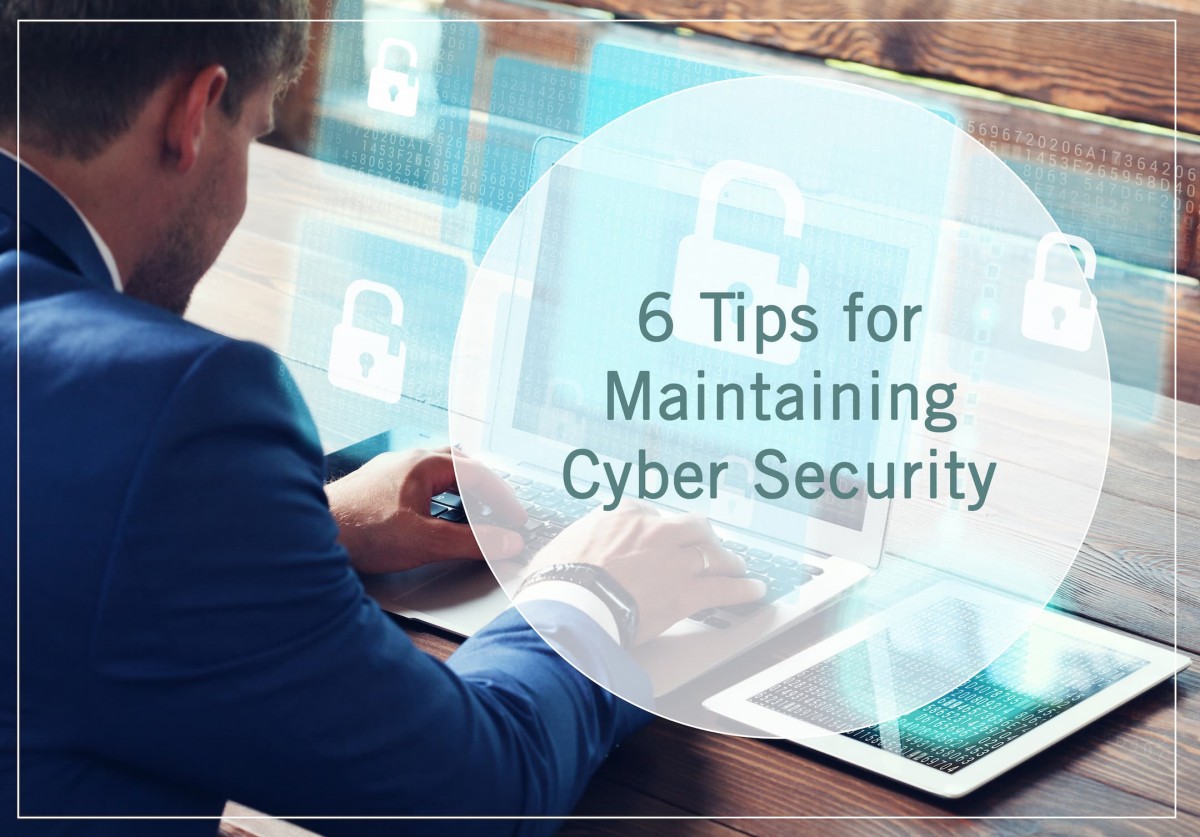6 Tips for Maintaining Cyber Security
6 Tips for Maintaining Cyber Security
 Cyber security is one of the hottest topics around right now because hackers, as well as threats from both insiders and outsiders, are constantly evolving. Life is increasingly digital and online students in particular access the internet for a multitude of reasons every day. It can never hurt to find a new security practice to enact.
Cyber security is one of the hottest topics around right now because hackers, as well as threats from both insiders and outsiders, are constantly evolving. Life is increasingly digital and online students in particular access the internet for a multitude of reasons every day. It can never hurt to find a new security practice to enact.
1. Social Engineering
Hackers do not always use advanced computer hacking techniques. Rather, most use much simpler tactics. For example, a hacking victim might be tricked into giving up sensitive data after receiving a phone call from someone pretending to be the IT department from his or her workplace. A good rule of thumb is to be wary of fake profiles created by hackers on LinkedIn or on Facebook, especially if the profile is attempting to connect as your friend. Also, keep your devices covered when entering your password in public.
2. Malicious Links and Ransomware
You may get an email about a great deal online for shoes, but that link could contain a virus or allow hackers to detect and steal personal information. Additionally, be wary of ransomware, which can encrypt your data when you download it and then lock you out. At that point, the hacker may demand payment for you to access your files and there is no guarantee you will be granted access once you pay. To avoid corruption, know whom is sending you emails and what those emails may link to. Never put a foreign USB into your computer unless you know it can be trusted. Always make sure to backup your files just in case.
3. Monitor Applications with Data Access
Many applications have the ability to access your data, whether or not you enter it in manually. Built-in security may attempt to protect critical information, but the possibility of this information being unsafe is always there. 2-factor authentication is the best way to protect your applications, particularly ones for your banking information and email. Consider adding an extra layer of security wherever you can.
4. Be Careful Who Knows Your Passwords
While it is important to make sure no one watches you type in a password, it is also important to be sure you do not tell anyone your password. If your husband or mom needs to know your password, be cautious about how you give it to them and about who they tell. Make sure your passwords do not fall into the wrong hands. Do not reuse the same password over and over again. Delete accounts you have not used in months and do not plan to use again in the near future. Keep a log of websites you have accounts with so your critical information does not just sit in a website waiting to be hacked.
5. Regularly Install Your Computer Updates
Having hardware security and software protection ensures that your digital information is as protected as possible. Make sure that you install your computer updates regularly to get past hackers who may have learned how to break into an old version of the computer’s software. A hacker is much more likely to violate your information online if you have not loaded in your computer updates to help with security. Also, make sure your wireless router is secured and change your password and network name from the one originally provided. Set up a guest network for others to use.
6. Create a Data Breach Response Plan
Despite keeping up with all of these cyber security measures, there is always the possibility of a breach. Therefore, it is important to prepare. Keeping a detailed log of which websites and organizations may have your personal data will allow you to react correctly after a data breach. Also, it is worthwhile to regularly check your bank statements to make sure a breach has not already occurred.
Have questions? Contact UGA EITS.
